Segovia is famous for its Roman aqueduct. It is every bit impressive as we expected, for its age and splendor, especially we have seen quite a few on this trip. Partly to escape the crowds in Segovia, where one is supposed to escape to Segovia from Madrid, we went to gardens at the royal palace in La Granja. It was huge and lovely and I could have wandered there all day if it were not for the heat. Temperatures were approaching 90 F, which I considered unjustified when we are at 1000m. Even locals consider it a heat wave. Being a weekend, there are about three million people in the streets, day and night. It was bordering on being crowded.
We left the hostal in Leon in a downpour, walking over a kilometer to the bus station with our pack covers tight and umbrellas up. Later, dry on the bus, we passed scores of Camino pilgrims walking west in the steady drizzle.
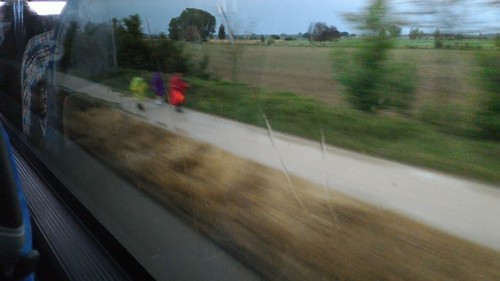
The weather cleared as we neared Segovia and from the bus we had a great view of the Segovia Alcazar and Cathedral.
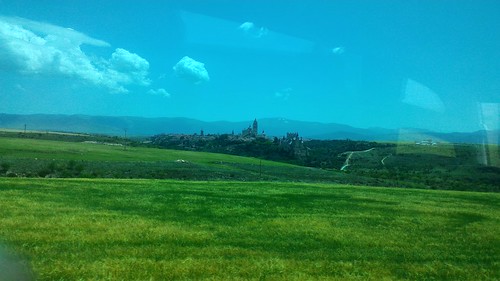
After settling into our hostal and completing the 15-minute Rick Steves walking tour, we decided to walk to a series of viewpoints...First the Alcazar.
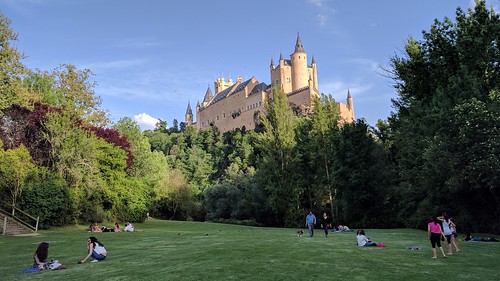
Then views of both the Alcazar and the Cathedral from the very nice loop greenway/trail.
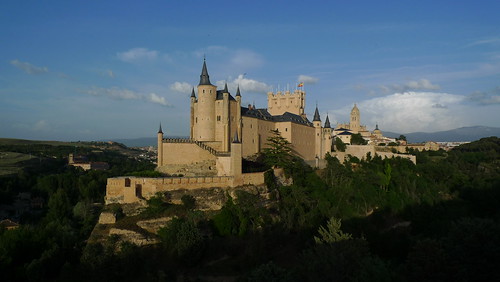

The next day: a short bus ride to the Royal Gardens at La Granja. Wow! The photos do not do it justice.
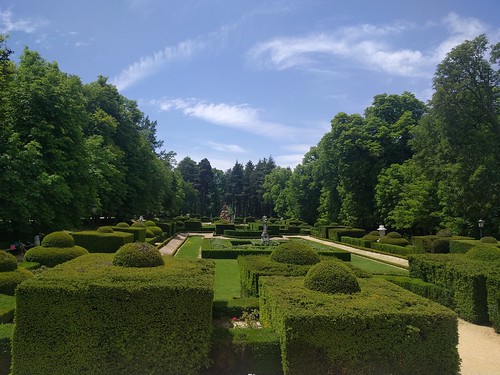
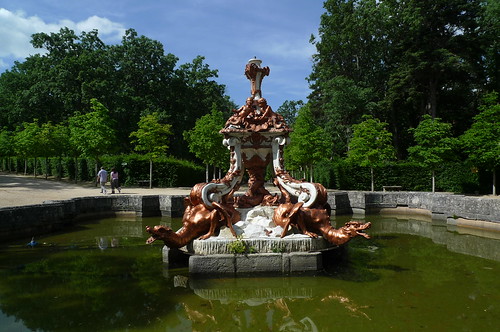
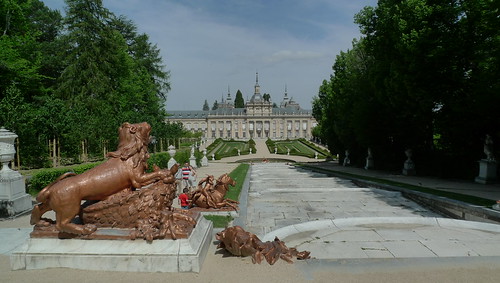
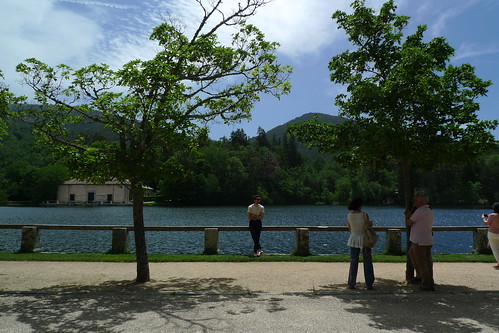
Back in town, we first check out the city walls before inspecting the Roman Aqueduct.
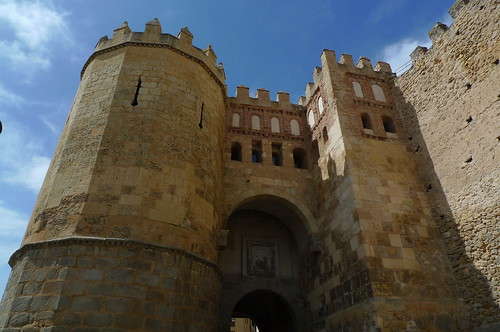
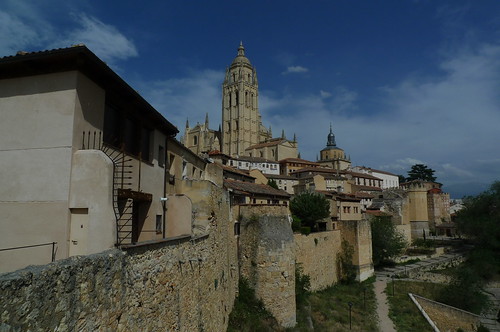
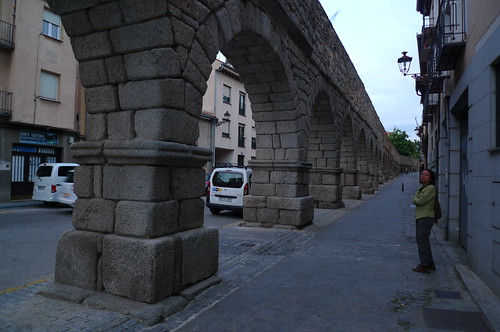

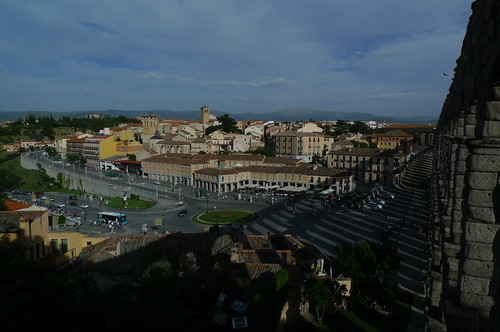
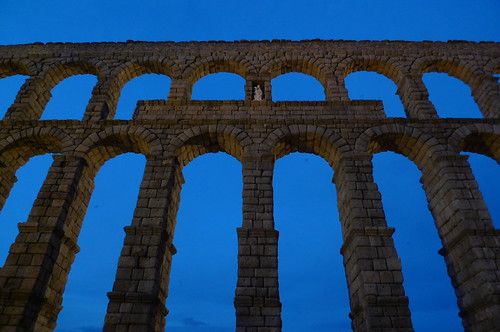
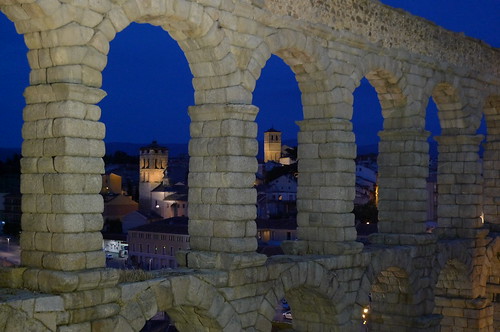
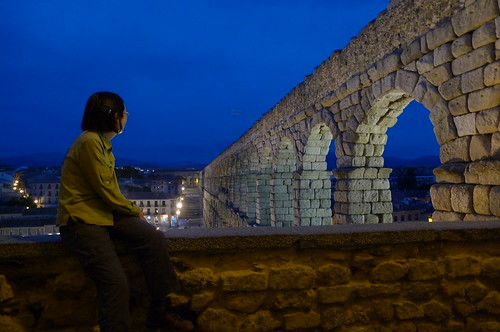
We could see the aqueduct from our balcony.
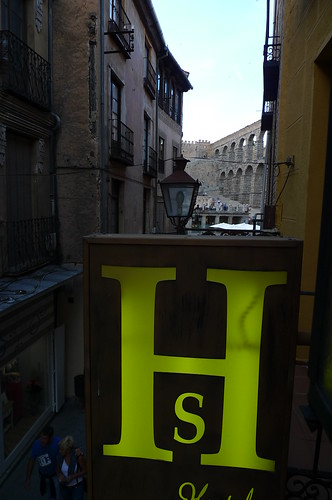
There were many tourists from all over the world in Segovia.
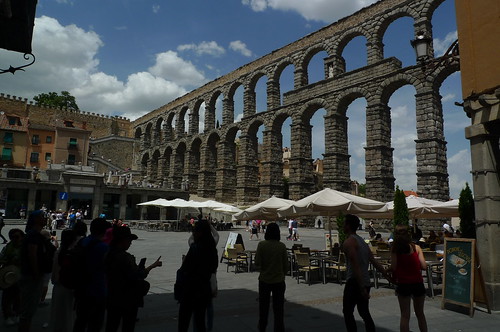
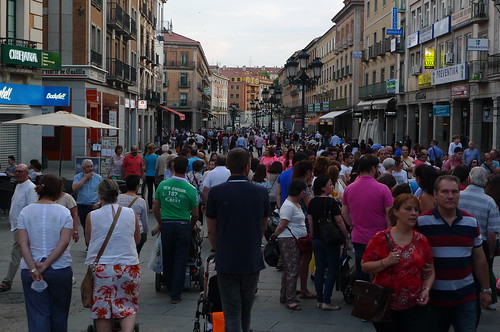
Finally, the Cathedral at night.
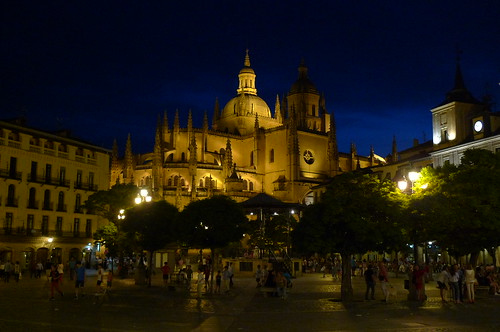
Is the Roman Aquaduct still in use? Does it have a pipe to carry water not exposed to the elements for human consumption? Or does it carry agricultural water for grain fields?
ReplyDelete@Crash, The guidebooks say the aqueduct is not in use but is still capable of carrying water. The water was for use in the city of Segovia which I guess was mostly for human consumption and bathing, and as a continuous latrine flush. There is a "lid" on top.
ReplyDelete